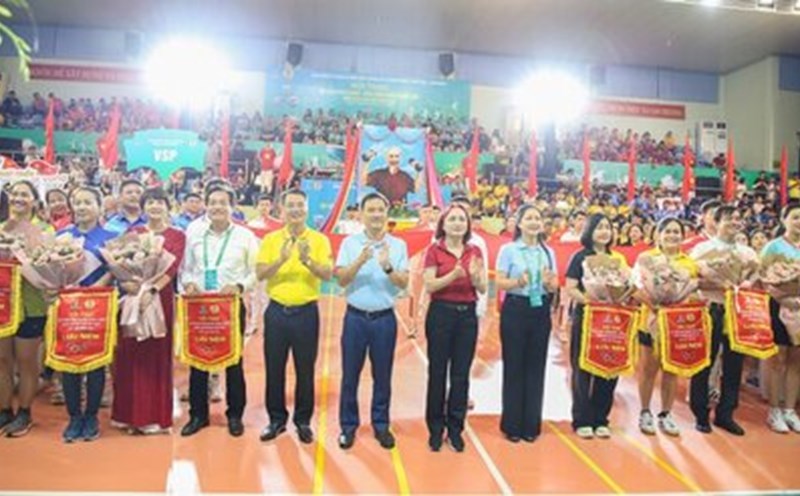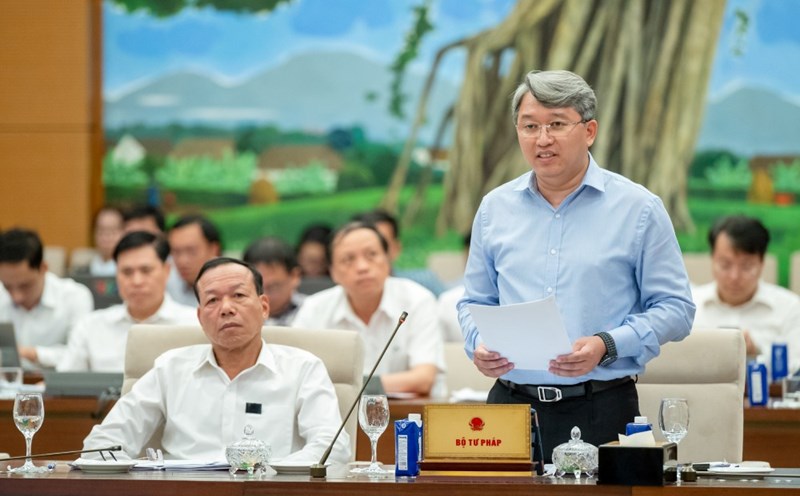Promoting the strengths of private enterprises
Not only stopping at the goal of "enough electricity for growth" as before, Resolution 70-NQ/TW requires ensuring high-quality energy sources, reasonable prices, sustainability, adaptation to climate change and international integration.
The biggest breakthrough of Resolution 70-NQ/TW is the fundamental change in thinking about the role of private enterprises in the energy sector. If the electricity industry has long been considered a "state-owned accumulation city", now, the Politburo has affirmed that electricity must be a market-based service with competition and choice. This is the first time a Politburo-level document has emphasized the restructuring of the electricity industry towards increasing competitiveness, transparency and sustainability, while encouraging the private sector to comprehensively participate in all stages from power generation, storage, transmission, energy reserve, to distribution and services.
Associate Professor, Dr. Ngo Tri Long, former Director of the Institute for Price Market Research, commented that the shift from monopoly thinking to transparent market thinking is a revolution in the electricity industry. He said that for the first time, people and businesses have the right to choose a power supplier instead of having only one seller, EVN. This not only creates momentum for electricity market reform but also opens up opportunities for private enterprises to affirm their position in a field that is considered sensitive and strategic.
In reality, EVN no longer has a monopoly on electricity production but is still the only buyer in the wholesale market, while having a monopoly on electricity transmission and retail. This mechanism has caused the competitive electricity market to slow down for many years, the price mechanism is still distorted, and has not properly reflected the supply-demand relationship. Therefore, Resolution 70-NQ/TW requires the effective implementation of the direct power purchase and sale mechanism (DPPA) between manufacturers and major customers, while completing transparent, long-term and stable power purchase and sale contracts, ensuring legitimate benefits for investors.
Another highlight of the resolution is to encourage private enterprises to participate in investing in energy storage infrastructure such as batteries, LNG warehouses, and gasoline warehouses both on land and offshore. In the context of strong but interrupted development of renewable energy sources such as wind and solar, the development of large-scale storage systems is a mandatory condition to ensure stable operation of the national power system. This is also the field in which private enterprises, especially technology enterprises, can promote the advantage of flexibility, innovation and implementation speed.
Dr. Ngo Duc Lam - former Deputy Director of the Energy Institute - emphasized that to meet the double-digit growth demand in the next decade, Vietnam needs about 200 billion USD for energy development, equivalent to an average of 20 billion USD per year. Obviously, EVN or PVN cannot fully bear this investment burden and only when the private sector participates strongly will the capital problem have a solution. He also affirmed that electricity development must be one step ahead. To have enough energy for growth today, 5-10 years ago we had to invest and that is the reason why mobilizing all economic sectors to participate in the electricity industry becomes urgent.
Unblocking barriers
In February 2020, the Politburo issued Resolution No. 55-NQ/TW on the orientation of Vietnam's National Energy Development Strategy to 2030, with a vision to 2045. Resolution 55-NQ/TW also clearly states: Encourage and create all favorable conditions for economic sectors, especially the private economy, to participate in energy development.
However, after 5 years of implementing Resolution 55, for private enterprises to truly become the core force in ensuring national energy security, there are still many barriers that need to be removed.
According to Dr. Nguyen Sy Dung - former Deputy Head of the National Assembly Office - the biggest difficulty for the private sector today is the ability to access capital. Investing in energy requires a large amount of capital and a long payback period, while domestic loan interest rates are high, and foreign loans require Government guarantees. Many small and medium-sized enterprises - which account for the majority of Vietnam's private sector - are unlikely to access these capital sources.
Another obstacle is the lack of stability of the legal framework. Dr. Nguyen Quoc Viet - University of Economics (VNU-HHN) - said that Vietnam currently does not have a separate law on renewable energy. Price mechanisms such as FIT or DPPA contracts are still inconsistent, increasing legal risks for investors. The transport infrastructure has not yet met the development speed of renewable energy, leading to the situation of "surplus electricity cannot be sold" that once occurred in Ninh Thuan and Binh Thuan.
To address these challenges, many experts recommend that financial policies and mechanisms must be finalized soon.
Associate Professor, Dr. Ngo Tri Long proposed the establishment of a National Energy Transition Fund to provide preferential credit and risk guarantees for clean energy projects. He also emphasized the need to build a green financial ecosystem, including green credit, green bonds and carbon certificates, to create sustainable capital flows for the private sector.
In addition, incentives for corporate income tax, tax exemptions for importing energy-saving equipment or a mechanism for rapid depreciation of assets invested in electricity storage technology also need to be applied.
In fact, the private sector has proven its pioneering role in developing renewable energy. Within just 10 years, Vietnam has risen from being almost "empty" on renewable energy to leading ASEAN in terms of solar and wind power capacity.
According to the Ministry of Industry and Trade, by 2024, private enterprises will account for nearly 80% of the country's solar power capacity. That shows that when there is an incentive mechanism, private enterprises can completely create a turning point for the energy industry.
Resolution 70 sets a target that by 2030, the total capacity of Vietnam's power sources will reach 183 to 236GW, with a total electricity output of about 560 to 624 billion kWh. The proportion of renewable energy in the total primary energy supply is about 25 to 30%. Energy saving compared to the normal development scenario is about 8 to 10%. In particular, the resolution requires the early implementation of Ninh Thuan 1 and 2 nuclear power projects with the participation of appropriate partners, and putting them into operation in the period of 2030-2035. By 2045, Vietnam strives to build a smart, modern energy system, deeply connected to the region and the world, with the proportion of renewable electricity (excluding hydropower) accounting for 74-75%.
Encouraging the private sector to participate actively in the energy sector not only helps reduce public investment pressure but also creates an important competitive advantage when Vietnam integrates more deeply into the global economy. In the context of geopolitical fluctuations and unpredictable world energy prices, diversifying supply sources and investors will help the Vietnamese economy be more proactive, avoiding dependence on a few traditional energy sources.
Resolution 70-NQ/TW therefore is not only a political document, but can also be considered a revolution in the energy sector. It marks the transition from monopoly mechanisms to competitive markets, from all-incentive thinking to transparent thinking and from the state's comprehensive responsibility to expanding private and international participation. This is a key driving force to ensure national energy security, meet high and sustainable growth requirements, and contribute to the realization of the commitment to net zero emissions by 2050.
Resolution 70-NQ/TW is expected to become a historic turning point, turning energy challenges into development opportunities, helping Vietnam move faster on the path to becoming a developed, green and sustainable country by the mid-X mixing centuries.
Need to improve policies for the private sector to participate in developing clean energy infrastructure
Speaking with Lao Dong, Dr. Nguyen Quoc Viet - economic expert, lecturer at the University of Economics (VNU-UghN) - said that the legal framework related to renewable energy in Vietnam is still lacking in consistency and not attractive enough to attract investment from economic sectors.
Technical standards and regulations on renewable energy technology are not yet complete, causing difficulties in implementing renewable energy projects. Moreover, the lack of a specialized law on renewable energy reduces transparency and consistency in preferential policies, causing legal and financial risks for investors.
Completing the energy market policy framework and mechanism is very necessary to promote energy transition. The government needs to continue to improve and make transparent preferential policies and electricity price mechanisms, such as the FIT (Feed-in-Tariff) mechanism and the direct electricity purchase and sale contract (DPPA) model. These mechanisms will encourage the private sector to participate in investing and developing clean energy infrastructure. At the same time, amending laws related to energy and power development planning will help facilitate the implementation of renewable energy projects, strengthen supervision and evaluation of policy implementation effectiveness, and ensure the success of energy transition" - Dr. Nguyen Quoc Viet emphasized.











